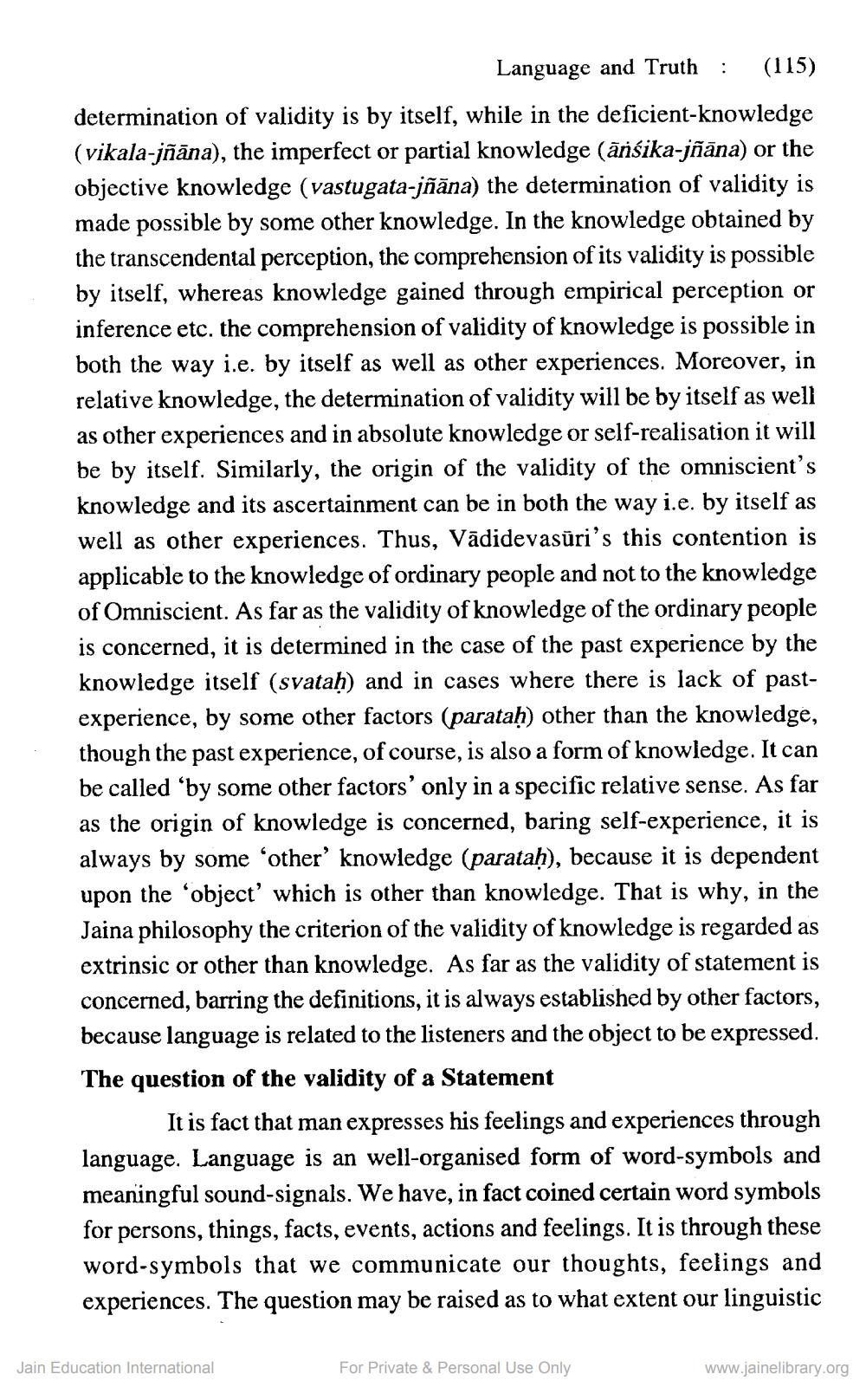________________
Language and Truth:
(115)
determination of validity is by itself, while in the deficient-knowledge (vikala-jñāna), the imperfect or partial knowledge (ānsika-jñāna) or the objective knowledge (vastugata-jñāna) the determination of validity is made possible by some other knowledge. In the knowledge obtained by the transcendental perception, the comprehension of its validity is possible by itself, whereas knowledge gained through empirical perception or inference etc. the comprehension of validity of knowledge is possible in both the way i.e. by itself as well as other experiences. Moreover, in relative knowledge, the determination of validity will be by itself as well as other experiences and in absolute knowledge or self-realisation it will be by itself. Similarly, the origin of the validity of the omniscient's knowledge and its ascertainment can be in both the way i.e. by itself as well as other experiences. Thus, Vādidevasūri's this contention is applicable to the knowledge of ordinary people and not to the knowledge of Omniscient. As far as the validity of knowledge of the ordinary people is concerned, it is determined in the case of the past experience by the knowledge itself (svataḥ) and in cases where there is lack of pastexperience, by some other factors (parataḥ) other than the knowledge, though the past experience, of course, is also a form of knowledge. It can be called by some other factors' only in a specific relative sense. As far as the origin of knowledge is concerned, baring self-experience, it is always by some 'other' knowledge (parataḥ), because it is dependent upon the ‘object' which is other than knowledge. That is why, in the Jaina philosophy the criterion of the validity of knowledge is regarded as extrinsic or other than knowledge. As far as the validity of statement is concerned, barring the definitions, it is always established by other factors, because language is related to the listeners and the object to be expressed. The question of the validity of a Statement
It is fact that man expresses his feelings and experiences through language. Language is an well-organised form of word-symbols and meaningful sound-signals. We have, in fact coined certain word symbols for persons, things, facts, events, actions and feelings. It is through these word-symbols that we communicate our thoughts, feelings and experiences. The question may be raised as to what extent our linguistic
Jain Education International
For Private & Personal Use Only
www.jainelibrary.org




